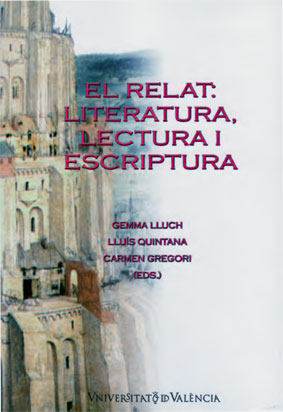Current youth literature. Discursive structures in Spanish
DOI:
https://doi.org/10.7203/qf-elit.v18i0.3296Keywords:
young adult narrative, discourse, literature in Castilian (Spanish) Abstract
Abstract
The growing number of studies about the young adult narrative facilitates its access in the literary system, though still in a peripheral situation, and makes it get its own identity against the creations destined to the childhood. The scene at present is diverse, for in addition to more commercial works integrated with other products of similar features in a so-called young adult culture, other more validated are offered, starting from the development of an incipient canon to which criticism, the institutional networks of selection or the literary rewards contribute. The analysis is centered just in this type of works, which have entered to be part of the school recommendations, starting from discursive aspects such as the structure, the perspective and the narrative words, the superposition of times and spaces and tunes and speech. To incise in the types of discourse of the narrative in the last decade in the area of the Castilian language allows connect the development of the literary competence and the new forms of cultural use inserted in the nowdays multimedia society, besides offering ways for the comparative analysis with the production in other languages.
 Downloads
Downloads
Downloads
How to Cite
-
Abstract549
-
PDF (Español)0
-
PDF (Català)1306
-
PDF459
Issue
Section
License
 Este obra está bajo una licencia de Creative Commons Reconocimiento-NoComercial-SinObraDerivada 4.0 Internacional.
Este obra está bajo una licencia de Creative Commons Reconocimiento-NoComercial-SinObraDerivada 4.0 Internacional.
Authors who publish with this journal agree to the following terms:
- Authors retain copyright and grant the journal right of first publication with the work simultaneously licensed under a Creative Commons Attribution License that allows others to share the work with an acknowledgement of the work's authorship and initial publication in this journal.
- Authors are able to enter into separate, additional contractual arrangements for the non-exclusive distribution of the journal's published version of the work (e.g., post it to an institutional repository or publish it in a book), with an acknowledgement of its initial publication in this journal.
- Authors are permitted and encouraged to post their work online (e.g., in institutional repositories or on their website) prior to and during the submission process, as it can lead to productive exchanges, as well as earlier and greater citation of published work (See The Effect of Open Access).



